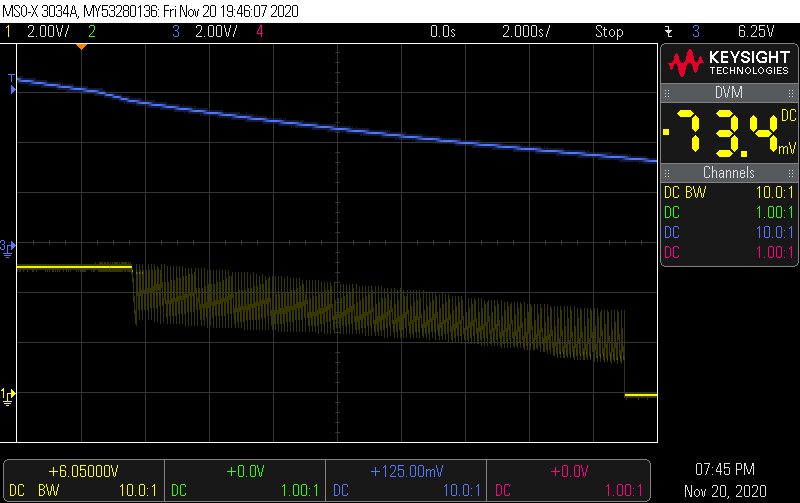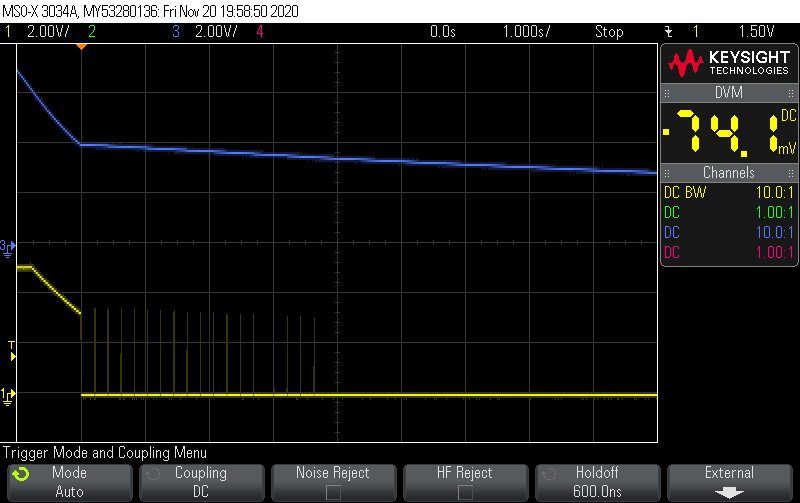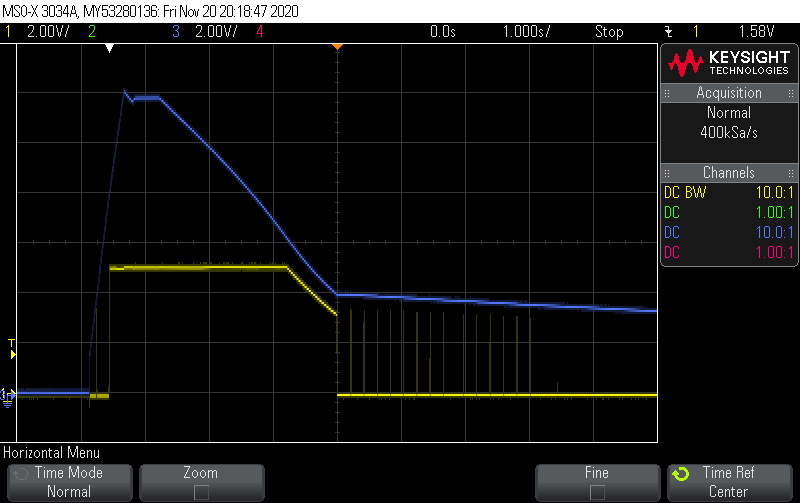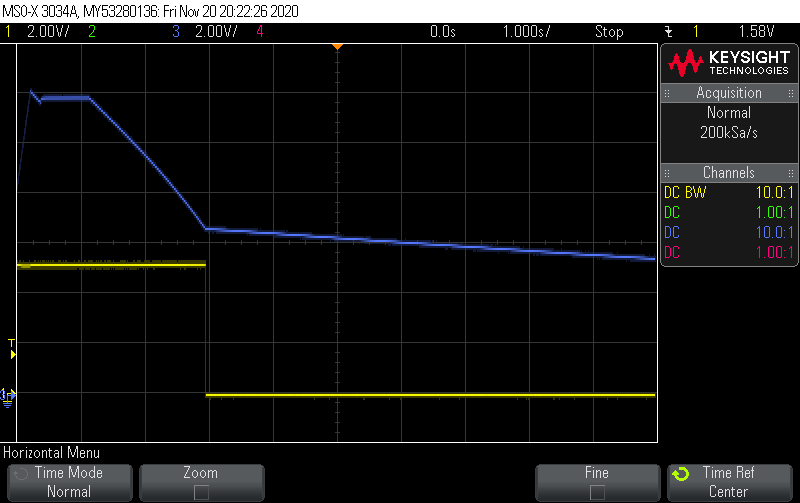The PSU5 as an LM323K replacement as been in production continuously since June 2014 and thousands are in the field. Some time ago I was blindsided by an unexpected discontinuation of the switcher IC and I had to redesign the module and the Revision 2 module was introduced. There have been a few other revisions to improve the potentiometer and the calibration range.
Since the earliest units some Pinball machine users have reported a loud sound through the speakers as the machine is turned off. It is not a universal issue and I have never spent much time trying to resolve it. I have known about the issue and its cause for a long time but it was hard to fit a solution on the limited size of the module.
Cause of the noise in Pinball machines
The noise in the Pinball machines is caused by at least two causes conspiring to make life difficult. Most linear power supplies have a mains transformer followed by a rectifier and a large electrolytic capacitor. Capacitors exhibit a phenomenon called dielectric absorption which is the name given to the effect by which a capacitor, that has been charged for a some time, discharges only incompletely when discharged. When the discharge current is removed the capacitor voltage increases with time as more of the stored charge becomes available to supply a discharge current. More information is available on Wikipedia. Electrolytic capacitors are some of the worst capacitors for dielectric absorption. This is the first cause and the second is the behavior of the PSU5 itself when the output load is small and the input voltage is close to the dropout voltage of the module. The difference between the voltage where the module turns off and where it turns on is small, only a few hundred milliVolt.

The photo above shows the behavior of the PSU5 without a load when the input power is removed. The input to the PSU5 is a 12V supply with a 47,000uF electrolytic capacitor on the input terminals of the PSU5. The yellow trace is the 5V output and the blue trace is the 12V input. The oscillation of the output voltage is definitely not desirable but in practice this is not the cause of the audio noise in the pinball machines. When the pinball machine is powered off the load does not disappear abruptly. As long as the 5V is present there will be some load on the output of the PSU5.

In the image above the load is still present and the 12V drops rapidly and the output spikes up as the input voltage recovers due to dielectric absorption. This rapid rise and fall of the 5V output will definitely cause noise on the audio output.

In the scope shot above the PSU5 turns on and off as the input is rising. This is unlikely to happen in a normal application because the rise time of the 12V is normally much faster than the rise time of the bench power supply. The output of the PSU5 starts drooping before it abruptly turns off.
The new and improved PSU5 has circuitry to prevent this behavior and it is being tested in real pinball machines to verify that it prevents the noise during turn-off.

The scope shot above shows the completely clean turn-off behavior of the PSU5_NN. The 5V abruptly turns off when the 12V reaches the dropout voltage and stays off even as the 12V rail slowly discharges. The new revision will be for sale as soon as I can confirm that it solve the noise issue.
Differences between Versions
The PSU5_NN is essentially the same as the PSU5_Rev2 except for the behavior of the trimpot. On the PSU5_NN turning the trimmer clockwise increases the voltage and on the Rev2 it decreased the output voltage. Production versions of the PSU5_NN is yellow in color. (Not yet available, ETA 12 Dec ).